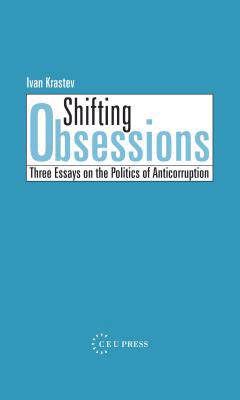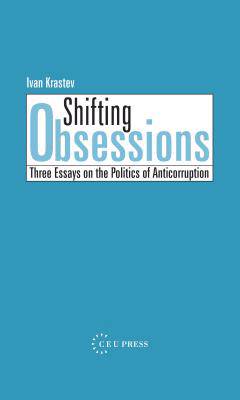
- Afhalen na 1 uur in een winkel met voorraad
- Gratis thuislevering in België vanaf € 30
- Ruim aanbod met 7 miljoen producten
- Afhalen na 1 uur in een winkel met voorraad
- Gratis thuislevering in België vanaf € 30
- Ruim aanbod met 7 miljoen producten
Zoeken
€ 135,45
+ 270 punten
Omschrijving
A global anticorruption crusade is underway. As slavery was once a way of life and now has become obsolete and incomprehensible, so the practice of bribery will become obsolete, a modern-day moralist has said. But how is global consensus on corruption possible? Why are anticorruption campaigns running out of steam, and why are post-communist societies obsessed with corruption? This book is not a study of anti-corruption policies. Instead, it looks at the politics of anti-corruption. Policies are what institutions do. But in analyzing politics, this book seeks to discover why institutions do what they do. The author delves into political motivations at a time when combating corruption is the fashion among the academic community. Krastev argues that anticorruption sentiments are not driven by the actual level of corruption but by general disappointment with liberal reforms that cause rising social inequality. In this collection of essays, the author makes the provocative argument that the current corruption-focused policies are doomed.
Specificaties
Betrokkenen
- Auteur(s):
- Uitgeverij:
Inhoud
- Aantal bladzijden:
- 134
- Taal:
- Engels
- Reeks:
Eigenschappen
- Productcode (EAN):
- 9789639241930
- Verschijningsdatum:
- 10/06/2004
- Uitvoering:
- Paperback
- Formaat:
- Trade paperback (VS)
- Afmetingen:
- 119 mm x 208 mm
- Gewicht:
- 498 g

Alleen bij Standaard Boekhandel
+ 270 punten op je klantenkaart van Standaard Boekhandel
Beoordelingen
We publiceren alleen reviews die voldoen aan de voorwaarden voor reviews. Bekijk onze voorwaarden voor reviews.











